Regular maintenance is the key to protecting your investment, keeping tenants satisfied, and avoiding costly emergency repairs. Whether you own one unit or several, having a structured plan in place ensures nothing falls through the cracks throughout the year. Preventive maintenance not only preserves property value but also signals to tenants that you care about the condition of the home, encouraging longer tenancies and better communication. This comprehensive annual maintenance checklist will help you stay organized, reduce risk, and plan your budget accordingly.
Why Annual Maintenance Planning Matters
Rental properties endure wear and tear that owner-occupied homes often don’t. Tenants may not report small issues right away or may not realize something requires attention until it becomes a bigger problem. That’s why proactive annual maintenance is essential. Scheduling regular inspections and upkeep throughout the year helps identify and resolve problems early, avoid emergency calls, and maintain compliance with local habitability laws.
Spring Maintenance Checklist
Spring is an ideal time to inspect the property after winter and prepare for warmer months. Focus on structural integrity, systems performance, and any damage caused by rain or cold weather.
Exterior and Grounds
- Inspect the roof for missing shingles, soft spots, or storm damage
- Clean and repair gutters and downspouts
- Check exterior paint and siding for signs of deterioration
- Reseal or repair cracks in driveways or walkways
- Test outdoor lighting and replace bulbs
- Trim trees and shrubs to prevent overgrowth or structural damage
Interior Systems
- Test smoke and carbon monoxide detectors and replace batteries if needed
- Service HVAC systems, including filter changes and duct cleaning
- Check water heater for leaks or corrosion
- Inspect faucets, toilets, and under-sink plumbing for slow leaks
- Look for signs of mold or water damage in kitchens and bathrooms
Tenant Communication
- Remind tenants about their responsibilities (changing filters, reporting issues)
- Check in with tenants to ask if they’ve noticed anything that needs attention
- Schedule any interior maintenance with proper notice to minimize disruption
Summer Maintenance Checklist
The summer months are a good time to focus on property appearance, pest prevention, and cooling systems. With warmer weather and longer days, this is a great season to tackle outdoor projects and inspect major systems.
Cooling and Ventilation
- Ensure air conditioning units are operating efficiently
- Clean AC condenser coils and clear debris from around units
- Check ceiling fans and exhaust fans for proper function
Pest Prevention
- Inspect for signs of pests such as ants, rodents, or termites
- Seal any gaps or cracks in foundations, windows, and doors
- Trim vegetation away from the foundation to reduce pest access
Exterior Maintenance
- Touch up exterior paint and caulking as needed
- Power wash siding, decks, and patios
- Repaint or reseal wood fences and decks if weathered
Appliances and Utilities
- Inspect and clean dryer vents to prevent fire hazards
- Test outlets and GFCIs in kitchens and bathrooms
- Flush the water heater to remove sediment buildup
Fall Maintenance Checklist
Fall is the perfect time to prepare your rental property for winter, especially in areas where temperatures drop significantly. Addressing potential cold-weather problems now can prevent expensive emergencies later.
Heating Systems and Insulation
- Schedule furnace inspection and tune-up
- Replace furnace filters
- Check windows and doors for drafts or broken seals
- Add or replace weather stripping as needed
- Inspect attic insulation for adequate coverage
Outdoor Prep
- Drain and winterize sprinkler systems
- Store or cover outdoor furniture
- Clear leaves and debris from gutters again before the first freeze
- Inspect the chimney and fireplace if applicable
Plumbing and Safety
- Insulate exposed pipes to prevent freezing
- Test sump pumps for proper operation
- Review fire safety plans and test detectors again
Winter Maintenance Checklist
Winter maintenance focuses on safety, minimizing cold-weather damage, and preparing for tenant needs during the holidays. Even if you’re in a warmer climate, some winter prep still applies.
Tenant Comfort and Safety
- Remind tenants to keep heat at a minimum safe level if they’re away
- Provide tips for preventing frozen pipes in colder regions
- Ensure snow removal plans are in place for sidewalks and driveways
Emergency Readiness
- Confirm 24/7 emergency contact info is updated and shared with tenants
- Check that emergency exits, lighting, and fire extinguishers are in working order
- Monitor roof for ice dams or heavy snow accumulation where applicable
Interior Checks
- Look for condensation on windows, which may indicate insulation issues
- Inspect flooring for cold drafts or moisture buildup
- Test water pressure and hot water delivery time to identify heater issues
Annual Tasks That Should Not Be Missed
In addition to seasonal maintenance, several tasks should be scheduled at least once per year regardless of season.
Full Property Walkthrough
- Conduct a detailed inspection of each unit’s interior
- Document wear and tear, lease violations, or unreported damage
- Take updated photos for your records and future comparison
Vendor and System Reviews
- Review contracts with pest control, landscapers, and maintenance vendors
- Evaluate utility usage and look for spikes that may indicate inefficiencies
- Test security systems, alarms, and smart home features if installed
Administrative and Financial Tasks
- Review and update lease templates and addendums
- Ensure property insurance coverage is up to date
- Analyze maintenance expenses to adjust next year’s budget
Staying Proactive All Year Long
Treating rental property maintenance as an ongoing responsibility rather than a reactive task saves time, money, and tenant turnover in the long run. By dividing maintenance tasks across seasons and checking key systems regularly, landlords can reduce costly repairs and keep their investment in top condition. Tenants appreciate landlords who stay ahead of issues, and that goodwill translates into longer leases, better communication, and fewer surprises for everyone involved.
